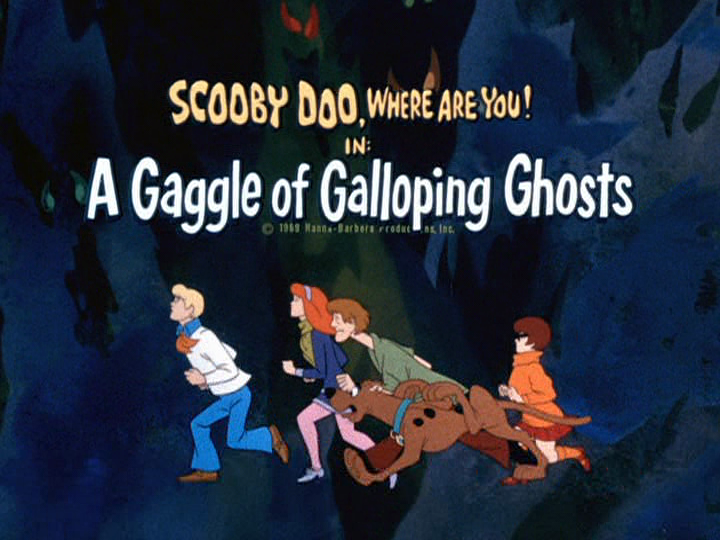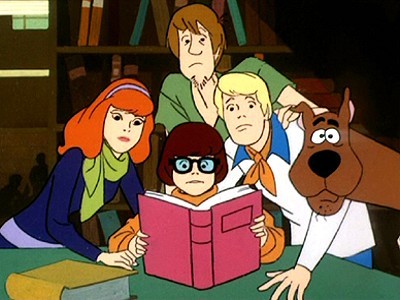13 February 2011
I watched a show on TLC today about
wedding dresses and the girls who buy them. On this particular episode, the
camera crew was in the alterations department to document a nervous bride’s
first dress fitting. This bride wasn’t so much anxious about the big day as she
was about the tent-like fit of her gown; pretty common fare for ladies about to
take the long walk down the aisle, I’m told. When she decided on that dress,
based on a sample gown she tried on during a previous shopping trip, the people
in charge of such things advised her, normally a size four, to order the dress
in a size twenty. The reason? This bride was pregnant. Six months pregnant at
the time of her first dress fitting, to be more precise. Watching her walk down
the aisle at the end of the episode, dress altered per her specifications, I
couldn’t help but shake my head and yell to the screen, “You shouldn’t have got
knocked up before you were married!” I realize that in this day and age,
according to society, it’s not such a big deal for your groom to have to climb over your stomach to kiss you
when the minister gives the okay. Heck,
it’s not even that big a deal to never
get married; instead, opting to be some
guy’s “woman” and share his house and his VW van and have his babies, all the
while working together to grow your own food. (If In-A-Gadda-Da-Vida isn’t
playing in your head right now as you imagine the montage of Phil and Rainbow’s
life together, I haven’t done my job.)
While I
don’t support such things as cohabitation and premarital sex, society as a
whole tends to care less these days. What is considered “appropriate” or
“acceptable” or “decent” isn’t the same today as it was ten or twenty years
ago; in fact, these terms all seem to be quite fluid. In my twisted mind, as my
mind always ties everything I encounter in the real world back into literary
issues, I thought about Hannah Webster Foster’s Eliza Wharton and how the coquette
would stack up in today’s world. While Eliza probably wouldn’t have died an
ignominious death if she were impregnated by her married lover today, I kept
coming back to my initial reaction that she probably wouldn’t have been happy,
either. I am confident that Eliza brings her horrible predicament upon herself
through her naïveté and immaturity, making said predicament all the more
tragic.
On first
reading The Coquette, Eliza seems like a fun-loving gal who just wants to after
the fortuitous death of her much-older, well-respected, long-time fiancé,
Mr. Haly.
She is, in her own words, “[n]aturally cheerful, volatile, and unreflecting”
and wants nothing more than to mix “in the busy scenes and active pleasures of
life” (Foster, 808). If we were choosing literary characters to hang out with
in a social setting, I would be the first to pick Eliza Wharton for my team.
She’s witty, energetic, and by all accounts, a fun girl. That being said, I
would also probably be the first one to tell her to reign in her volatility
where interpersonal relationships are concerned. “Grow up, Eliza!” I can
picture myself saying.
In
looking back on the events leading up to her tragic, yet predictable demise,
it’s fairly easy to see where she went wrong. Most critics read the novel and
cast Eliza as a proto-feminist, at odds with the antiquated ideals of her
family members and friends and a “powerful champion of personal freedom”
(Korobkin). I read it and thought she was immature, which is really the
festering sore from which all of her other problems stem.
Take, for
example, a scene described in Letter
III: Eliza, with the Richmans, attends a
party at Col. Farington’s. After dinner, all the guests go for a walk in the
garden. Eliza walks a little distance away from everyone and is followed by
Mrs. Laiton, who takes the opportunity to offer her condolences at the passing
of Eliza’s fiancé, Mr. Haly. Eliza proceeds to cop an attitude and throw a
silent hissy fit
(Foster,
809 ). Don’t remember this scene? That’s probably because Eliza is the one
describing it in the novel. It’s easy to side with the narrator, or in this
case, the letter-writer; a reason I think most people mistake Eliza’s spirited
“sense of entitlement” for freedom-loving and patriotic early feminism
(Korobkin). When you do take the time to step back and evaluate the situation
as an impartial observer, a few things come into focus: “As an acquaintance, Mrs. Laiton has no reason to know either
that Eliza had no warm feelings for Mr. Haly or that she would not welcome
condolence at the loss of a presumed loved one. Mrs. Laiton's expression of
sympathy, which she waits to deliver until Eliza is walking alone, is not
necessarily inappropriate or empty, nor is it clearly critical of Eliza”
(Korobkin).
Eliza
seems to make it a practice to run from responsibility, and fly off the handle
when others mention it. But
she’s not purely selfish and self-serving; if she were, we as
readers would catch on pretty quickly and take an instant dislike to her, which isn’t
the case. Along with her Peter Pan-like desire to avoid responsibility like the
plague, there also seems to be an element of uncertainty underlying all of Eliza’s
actions. She is a woman torn; torn between what she knows she should do (what
her family and friends advise her to do) and her desire to do what she feels
like (whatever vague or sudden inclinations her volatile disposition points her
towards).
According
to Laura Korobkin, modern readers tend to read Eliza’s materialism and
preoccupation with hilarity and frivolous social pursuits as forward-thinking,
glossing over “her hostility toward anything that interrupts her fun or smacks
even minimally of middle-class adult responsibility” (Korobkin).
Representative
of these two conflicting ideas are her two most ardent suitors, Mr. Boyer and
Peter Sanford, and each has his pros and cons; hence the indecision. Marrying
Boyer
would create the stable, dependable, and respectable life Eliza’s reason tells
her she should want. But her materialistic, social-climbing self doesn’t see
much insinuation into the glamorous upper echelons of society that she craves
if she marries Rev. Boyer. Eliza is the daughter of a country minister herself,
so an alliance with a man of the cloth wouldn’t be much of a step up for her.
Peter on the other hand, is handsome and fun-loving. But he is a known rake
which pretty much puts to bed (literally) most chances of having a respectable
relationship (i.e. marriage) with him. Eliza’s indecision about these two
suitors is the first tragically fatal mistake, stemming from her immaturity,
that she makes.
Practically
the entire first half of the novel is composed of her bouncing back and forth
between Boyer and Sanford. In one letter, she’s decided to give up Sanford and
cultivate her relationship with Boyer and in the next, she’s writing her
girlfriend that “‟a reformed rake makes the best husband‟” (Foster, 835).
Things finally reach a climax when Boyer, tired of being treated like a yo-yo,
gives Eliza a deadline to give him a straight answer about their finally being
engaged. On the day she is to give Boyer an answer, he finds her alone in her
mother’s garden with Sanford and breaks off their relationship on the spot. After
he’s gone, Eliza is sent into a profound melancholy because she realizes that
she really did want to marry him. She laments to Lucy Sumner: “we know not the
value of a blessing but by deprivation”(Letter XLIV). Eliza finally writes
Boyer, offering herself to him as a wife, but he has already become engaged to
another girl. This sends Eliza further into a spiraling depression. Ironically,
one of the things that kept Eliza during their courtship was that she imagined
a life with Boyer would be “dreary and confining” (Korobkin). But after she
realizes she can’t have him, she becomes depressed and confines herself,
mostly to her mother’s house. She no longer takes pleasure in parties or and
it’s like pulling teeth to get her to talk to anyone. Up until Boyer dumped
her, everyone thought that he and Eliza really were
engaged. Being jilted by Boyer,
therefore, somehow makes Eliza damaged goods. Apparently, because of some
unwritten rule, and through mutual nonverbal agreement, all of the many
admirers Eliza was “pestered with” at the beginning of the novel have all made
themselves scarce now (Foster, 811).
All of these
factors contribute to Eliza’s emotional and psychological condition at the end
of the novel. Eliza just can’t pull herself out of her depression. She wants to
feel like her old self, but she doesn’t know how, so she begins grasping at
straws. Sanford is the one person who makes her feel like she’s still Eliza,
that girl who was “the toast of the country”, the one who everyone wanted to be
around (815). Naively, she lets him insinuate himself into her life again, a
recurring theme in the plot. Her immaturity causes her to play right into
Sanford’s hands.
Throughout
the novel, Sanford says whatever he thinks she wants to hear and does whatever
he thinks he needs to do to seduce her. He keeps coming to Eliza and trying to
redefine their relationship because the seduction takes longer than he thought
it should. Edison only needed one way to make a light bulb, right? If
one way doesn’t work, abandon it and try another. This pattern keeps
repeating itself throughout the entire novel: Eliza lets Sanford in a little,
and then because of advice from friends she holds him at arms’ length. Then he
comes to her and says he wants to redefine their relationship (i.e. to get
serious, to just be friends, to be close friends, like siblings) so she lets
him in a little more. But, more advice from friends persuades Eliza to be wary
of him. While she does occasionally try to distance herself from the rake,
Eliza can never seem to fully disentangle herself from Sanford. In Letter X,
she says, “his assiduity was painful to me; yet I found it impossible to
disengage myself a moment from him .” In Letter XIX, “My heart did not approve
his sentiments, but my ear was charmed with his rhetoric, and my fancy
captivated by his address.” Eliza’s immaturity, once again, aids and abets her
downfall. She suffers from bad-boy syndrome, a malady common to females. She
knows she shouldn’t like Sanford or have anything to do with him because he is
a known rake. But that knowledge just adds a rush of adrenaline to her system
every time she sees him and every time he talks to her. There’s probably also a
little piece of her that thinks Sanford really will change for her, and become
a reformed rake.
After
Boyer breaks off their relationship (part of Sanford’s twelve-step seduction
plot), Eliza turns to Sanford, who has reappeared, married, and with
pretensions of being like a brother to Eliza. Elizabeth Dill in her “A Mob of
Lusty Villagers” submits that this is part of a deeper, more sick and twisted
psychological issue of incest, and apparently there are other people in this
incest camp as well. I’m not saying that incest wasn’t on Hannah Webster
Foster’s mind when she wrote The
Coquette, but to me, that seems like a bit of a
stretch. I think Sanford is just trying to lull Eliza into a false sense of
security while he tries to insinuate himself further into her life and figure
out his next move.
When she
finally is seduced by Sanford, I think it’s because Eliza wants to be the old
Eliza again so badly that she starts grabbing at any semblance of her old life,
any vestige of herself. That, unfortunately, means Sanford and his attentions.
Eliza learns too late that he is, both literally and figuratively, an empty
shell of what he appears or professes to be. He’s not really rich and he’s just
a lech, though he does in his own sick, perverse way love her.
Eliza is repeatedly described as “volatile”, and her volatility, I believe, is
a by-product of her immaturity. Korobkin notes: “Chemically, a substance that
was volatile showed a readiness to vaporize or evaporate, [a] tendency to be
readily diffused or dissipated in the atmosphere, especially at ordinary
temperatures‟ (OED); by analogy, a character similarly constituted has no
independent central core holding it together, but dissipates itself through
social interactions.” Had Eliza not invested herself so fully in superficial
and inconsequential pastimes, perhaps she would have been able to be more
serious or at least give more thought to serious subjects, like her
relationships. She would have been more able to make an accurate appraisal of
herself and her long-term goals and aspirations, and thus have realized before
it was too late (1) that she wanted to marry Boyer, and (2) that Sanford was a
rake and everything he supposedly had to offer her wasn’t enough to make her
happy.
In the
end, Eliza goes into self-imposed exile, leaving her mother a letter of apology
and asking for her forgiveness. She gives birth to a baby who dies and shortly
thereafter dies herself. All of this could have been avoided if she had reigned
in her materialistic desires; if she had taken the time to make an accurate
appraisal of herself and her real feelings and desires; if she had severed all
ties with Sanford immediately upon hearing of his reputation; if she had
realized that he hadn’t changed and was never going
to change; in short, by simply being a
little more mature. While I have no doubt that Eliza’s terrible, embarrassing
end predicament would be substantially less so in today’s culture, I’m also
fairly certain that her outrageous level of immaturity would prove to make her
just as miserable carrying her married lover’s baby.
Works
Cited
Dill, Elizabeth. “A Mob of Lusty Villagers: Operations of Domestic Desires in
Hannah
Webster
Foster's The Coquette.” Eighteenth
Century Fiction 15.2 (2003):
255-280. Wilson Web. Web. 8 Mar. 2011.
Foster, Hannah Webster. “The Coquette; or, The History of
Eliza Wharton. A Novel.
Founded on Fact. By a
Lady of Massachusetts.” The Norton
Anthology of American Literature:
Vol. A.
Ed. Nina Baym. 7th ed. New York: W. W. Norton & Company. 2007. 807-904.
Print.
Korobkin,
Laura H. “Can Your Volatile Daughter Ever Acquire Your Wisdom?” Luxury and
False Ideas in The Coquette.” Early
American Literature 41.1 (2006): 79-107. Wilson Web. Web. 8 Mar. 2011.


























.gif)



















